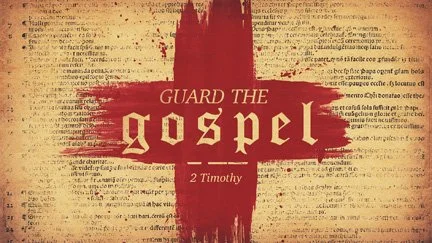When someone knocked on my door at 10:00 on a Friday night, I was a little anxious. After all, I lived alone (well, along with four dogs), and some people knew that this was a parsonage and came looking for help, and besides that I was already in my pajamas. I almost didn’t open the door. But I was more than a little curious, so I went to the door. It was a member of my congregation, John. I took one look at him and knew that something was horribly wrong. His eyes were red from crying and he looked like he was wearing the weight of the world on his shoulders. He wanted to know if he could talk to me.
According to the sexual ethics training I am required to take every few years, I was supposed to ask him to meet me in a public place, such as a coffee shop, or ask a third party to come and be in the house. However, what this man had on his face was not something that needed to be talked about in a coffee shop. So I invited him in, excused myself to get dressed, and joined him in the living room. He began to tell me the story of what had happened, his words tumbling out in between sobs. His wife had just told him she wanted a divorce; she was in love with someone she had met in an on-line chat room a few months back. She told him to pack his things and leave. No warning. No room for compromise. No willingness to try counseling. I was stunned; I had thought they were a solid couple, and they had two great kids. His pain was overwhelming. He was literally bent over with it.
John was by no means the first – or the last – parishioner I have comforted when life had weighed them down. It might be marital problems, or grief over the death of a child or spouse, or panic at a financial disaster, or fear over a devastating diagnosis, or anger and despair over a child or spouse caught up in the cycle of addiction. But it always looks the same; it bends people over with the weight of what they are trying to bear.
It always makes me think of this woman in Luke 13. Her story tugs at my heart, because it is so familiar. Ken Gire retells the story like this:
The base of her back is fixed at a right angle, like a rusted hinge. Her back muscles are knotted to help bear the weight of the severe curvature, and her nerves are pinched from the misaligned vertebrae. For almost two decades she has been tethered to this deformity, cinched tight by an emissary of Satan. A spirit has done a devilish dance on her back, leaving behind its cruel heel marks in trampling down what once stood tall and stately.
Above the bent woman arches an expansive sky where broken ranks of clouds parade by. But her movement is not so windblown and free. She winces in pain as she shuffles toward the synagogue. She can’t see the baby blue sky or the brilliant white billows overhead. She sees only the dirt brown streets and the litter of the day. As she takes her seat in the synagogue, Jesus’ attention is diverted from his text to fall upon the yellowed, dog-eared pages of her life. He skims the story of the last eighteen years, reading every sentence of suffering and pausing over every question mark that punctuates her pain. But what arrests his attention is the gilded edge on those pages – her faith. She is a true daughter of Abraham. And she has come to worship Abraham’s God, as she does every Sabbath. In spite of the pain. In spite of the pitied stares from adults. In spite of the giggled whispers from children at play in the streets.
Jesus closes the scroll he’s been teaching from and bids her to come to the front of the synagogue. It is an embarrassing moment for the woman. All eyes are riveted to her angular body as she makes her way awkwardly down the aisle. She stops before him, twisting her torso in a strained attempt to see his face, and their eyes meet. “Woman, you are freed from your sickness.” Jesus lays his hands on her hunched-over shoulders. And immediately the fisted muscles release their grip, the vertebrae fall into place, and the captive nerves are set free.
Like a cat arising from too long a nap, she stretches herself erect. As she does, eighteen years of misery tumble from her back to fall at the Savior’s feet. She raises her hands and turns her eyes toward heaven – something she hasn’t been able to do for a long, long time – and praises the God of Abraham and Isaac and Jacob, praises him for also being the God of lonely, little, bent-over women.
Maybe you can relate to this little bent-over woman. Maybe you are weighed down by a physical illness. I know that some of you are in pain this morning, from arthritis, from recent surgeries, from injuries sustained last year or twenty years ago. Some of you are trying to cope with high blood pressure, or high blood sugar, or other kinds of health conditions. You know the actual, physical pain that goes along with illness and injury and old age. And you feel bent over with the pain.
Some of you are weighed down by financial distress. You worry about having enough money to pay your bills. You struggle to make ends meet. You wonder if you will have enough for your years of retirement. You want to trust God to provide, but that can be hard when expenses keep going up and your income doesn’t keep up with the rate of inflation.
There are people sitting here this morning who are weighed down by their jobs. They are working in toxic environments, where bosses are bullies, or co-workers are unethical, or there is constant manipulation and maneuvering. Or maybe you are worried about your job security.
Perhaps there is someone here who is weighed down by concern over a relationship. You are not getting along with your spouse and you wonder if divorce is your only choice. Or you have a teenager whom you don’t seem able to communicate with at all anymore. Or you are on the outs with a friend who has been a friend for years, and you don’t even understand what happened.
All of these things that weigh us down cause stress in our lives, and stress can produce its own side-effects that also weigh us down. Sleeplessness. Fatigue. Headaches. Upset stomach. Muscle tension. Loss of appetite. Irritability. Anger. Feeling nervous. Having no energy. That’s no way to live life. And yet, we do. Many of us do live like that.
So what do we do? How do we get relief from those things that weigh us down? We look to the One who healed this little, bent-over woman one day in the synagogue. We believe that Jesus can still set us free from the burdens that we bear. We trust that Jesus means what he says: that he came so that we might live life to the fullest. And we believe that the one who could help this woman will also help us.
Obviously, Jesus didn’t promise to remove all our troubles or cure all our diseases. But Jesus did promise to be with us always, in and through all of it. And there are instances where Jesus brings healing to our bodies, our spirits, our situations, our hearts.
My mother died in 1996 at the age of 60 after a five-year battle with cancer. And the grief I felt when she was gone seemed overwhelming. She wasn’t just my mom; she was my best friend. I didn’t know what life without her would look like. I felt like I carried a humongous weight around on my shoulders. My insides felt empty. I was numb for a long time, and then I wished the numbness would come back, because the grief hurt so much. This grief didn’t last for just weeks or months; it was a grief that went on for years.
But gradually, Jesus healed my heart of that grief. He did it through the great friends who surrounded me during that painful time in my life. He did it through the faith that he had planted in my heart when I was just a little girl and that had gotten me through other tough times in the past. He did it by bringing the joy back into my heart, little by little, one day at a time. And one day, I realized that I didn’t feel so heavy any more. I discovered again that life is good. And the memories of all that my mom and I had shared while she was alive were a part of this joy and goodness.
No matter what it is that weighs you down, I know that Jesus can bring some kind of healing and wholeness to you again. If he doesn’t remove whatever it is that burdens you, he will help you carry that burden. And sometimes we need to lay down our burdens at his feet, because we are the ones who can’t let go of them. Just trust in Jesus. Trust in his heart. Trust in his compassion. Trust in his mercy and grace. What weighs you down is not so heavy that Jesus cannot take it away and set you free.



















Vivamus pellentesque vitae neque at vestibulum. Donec efficitur mollis dui vel pharetra.